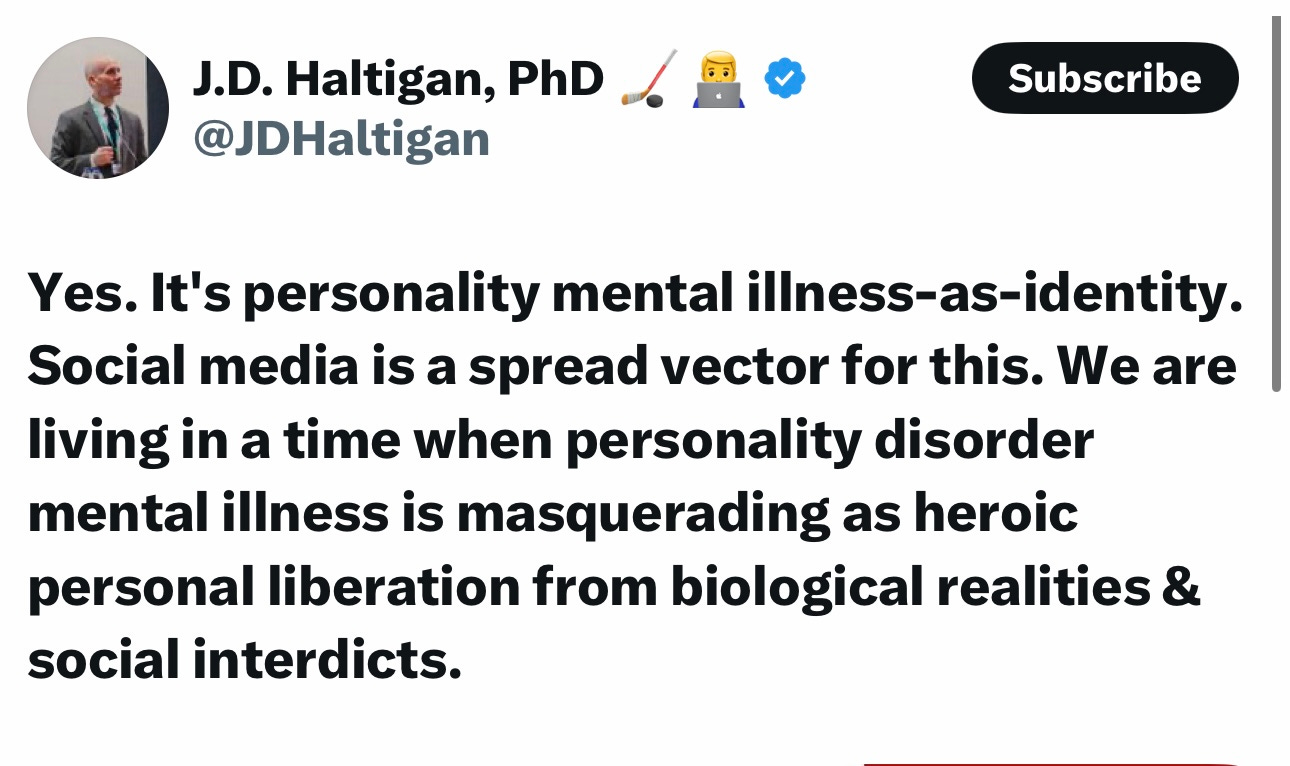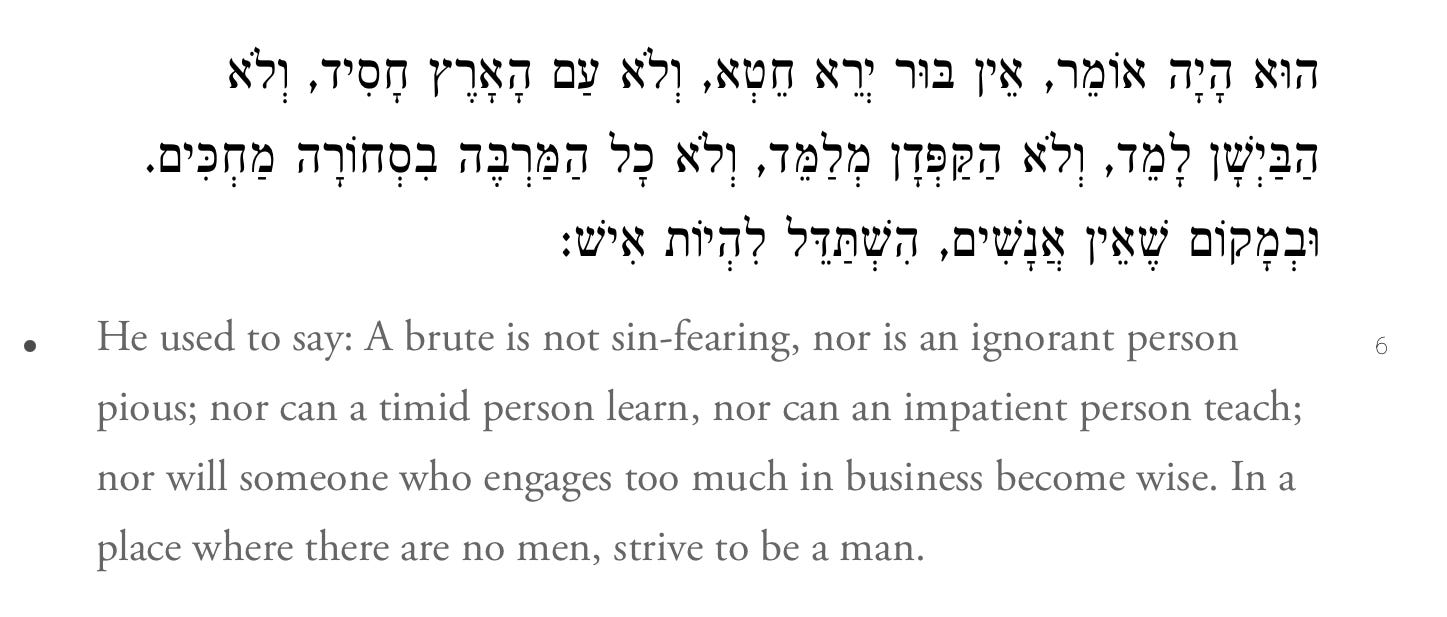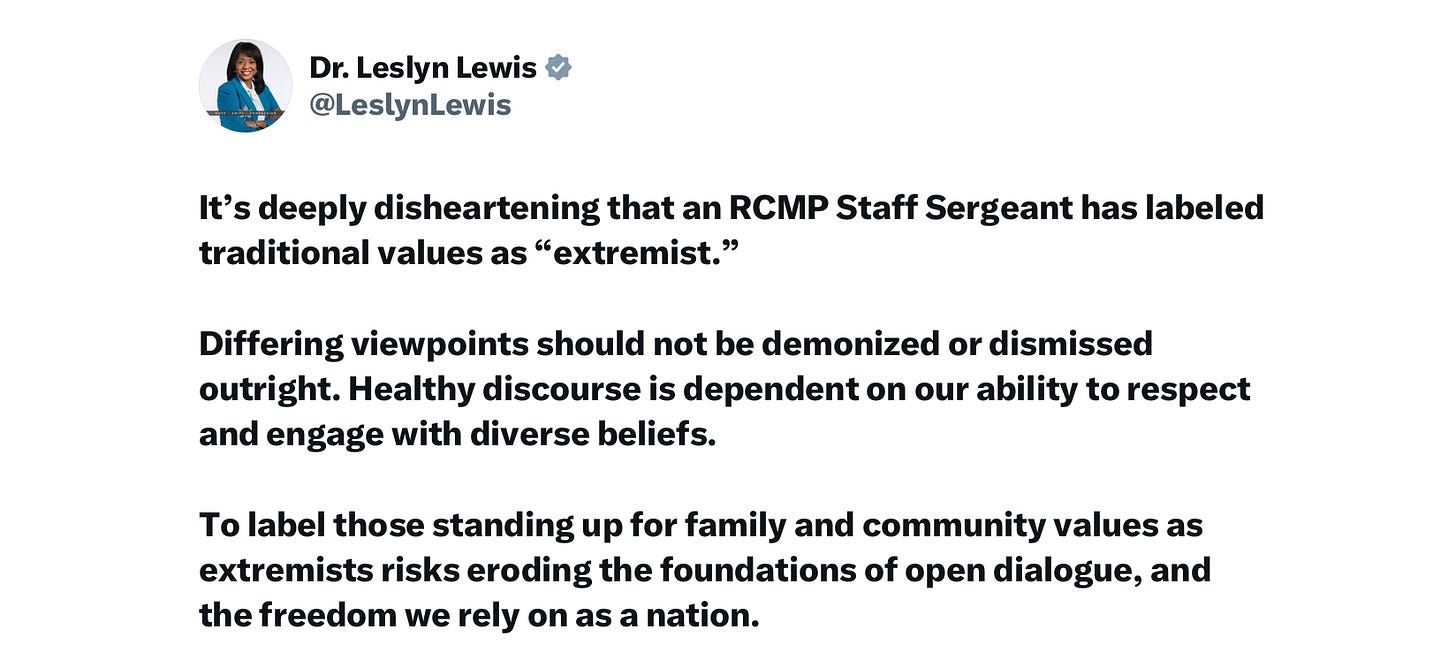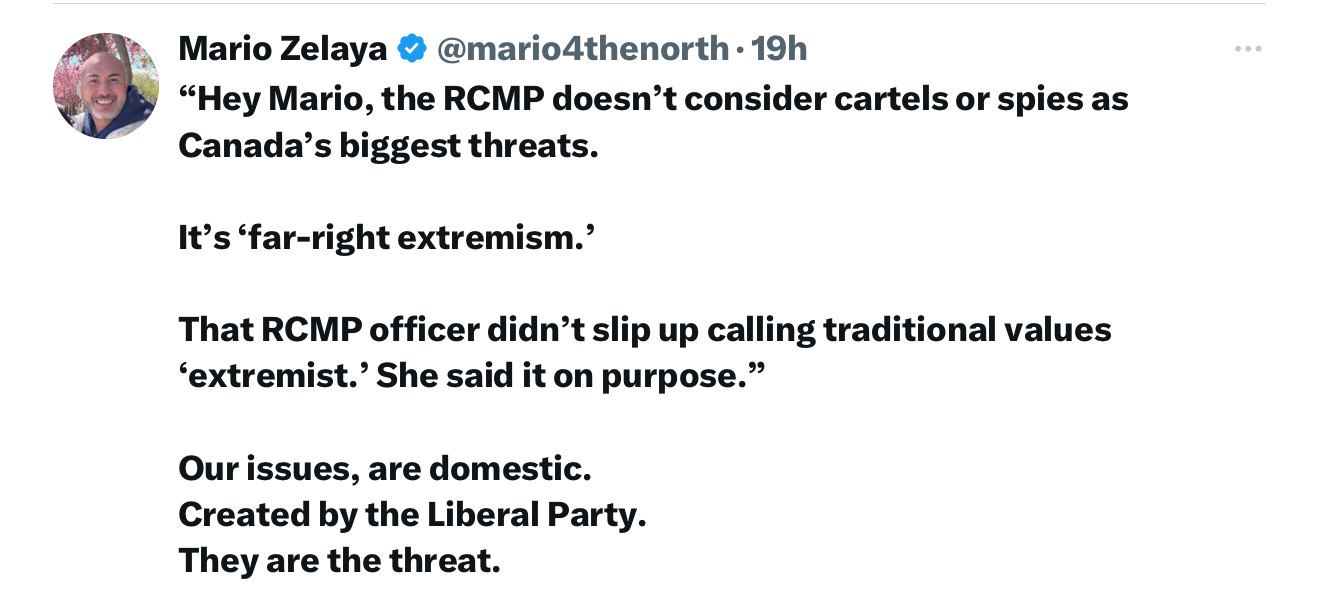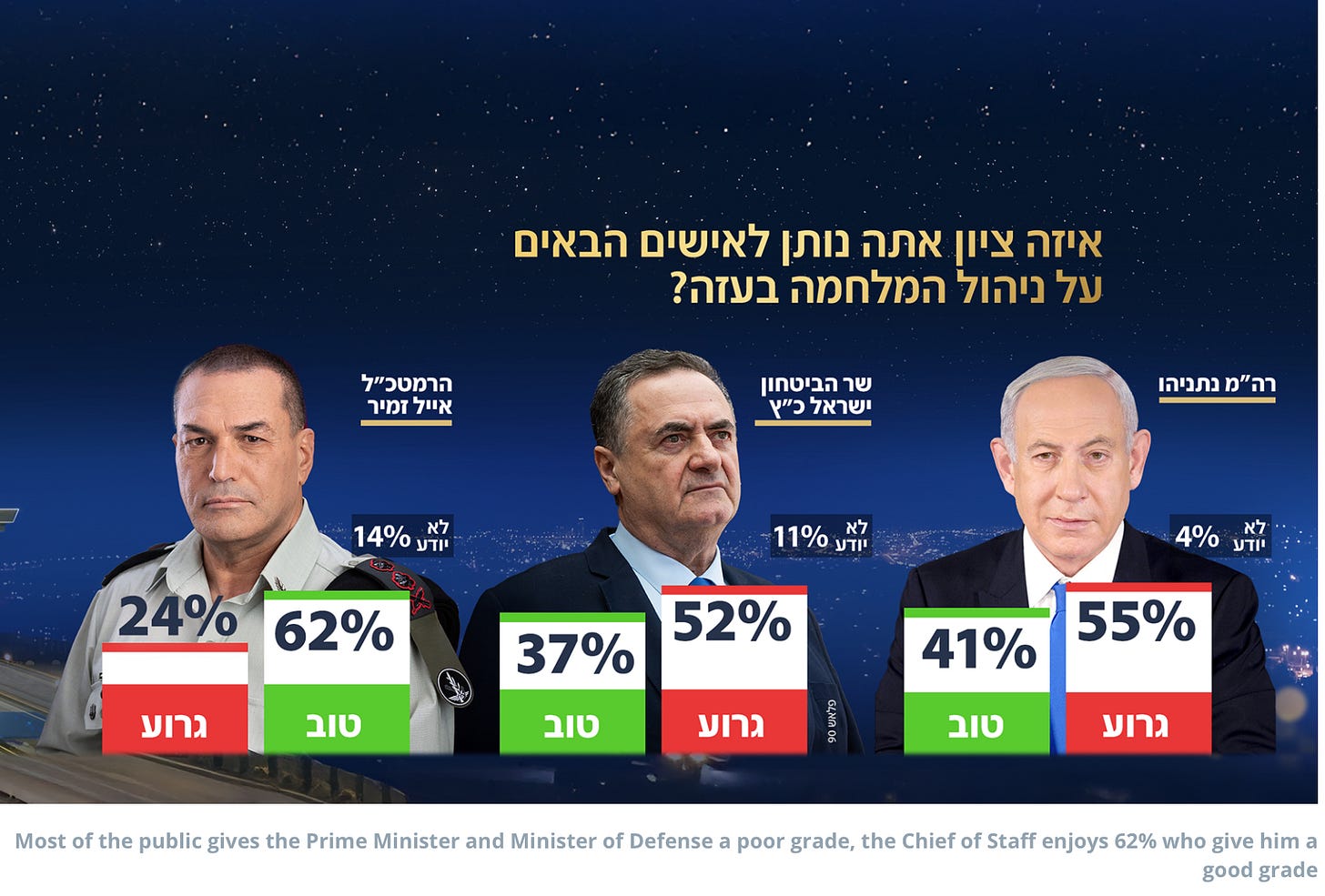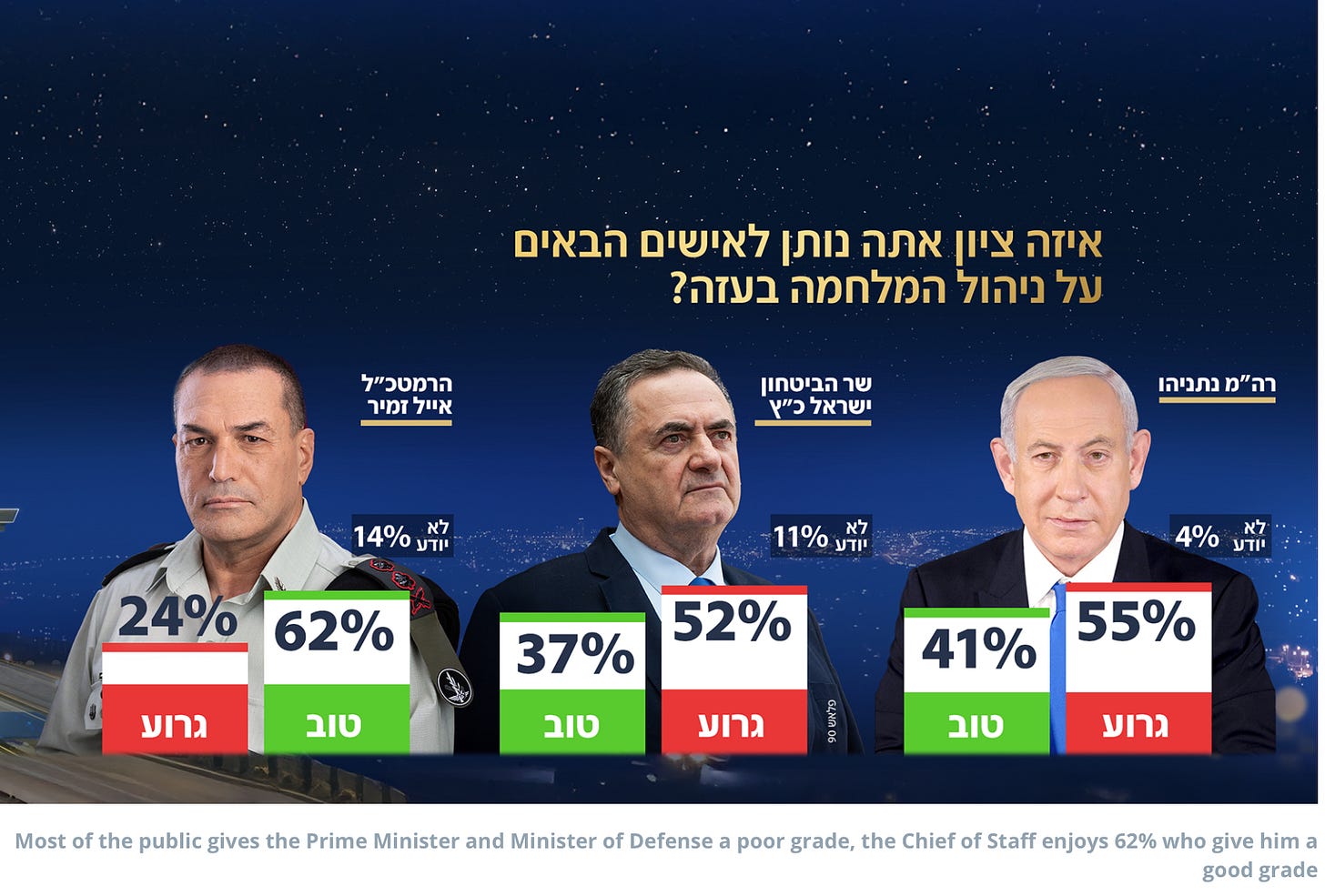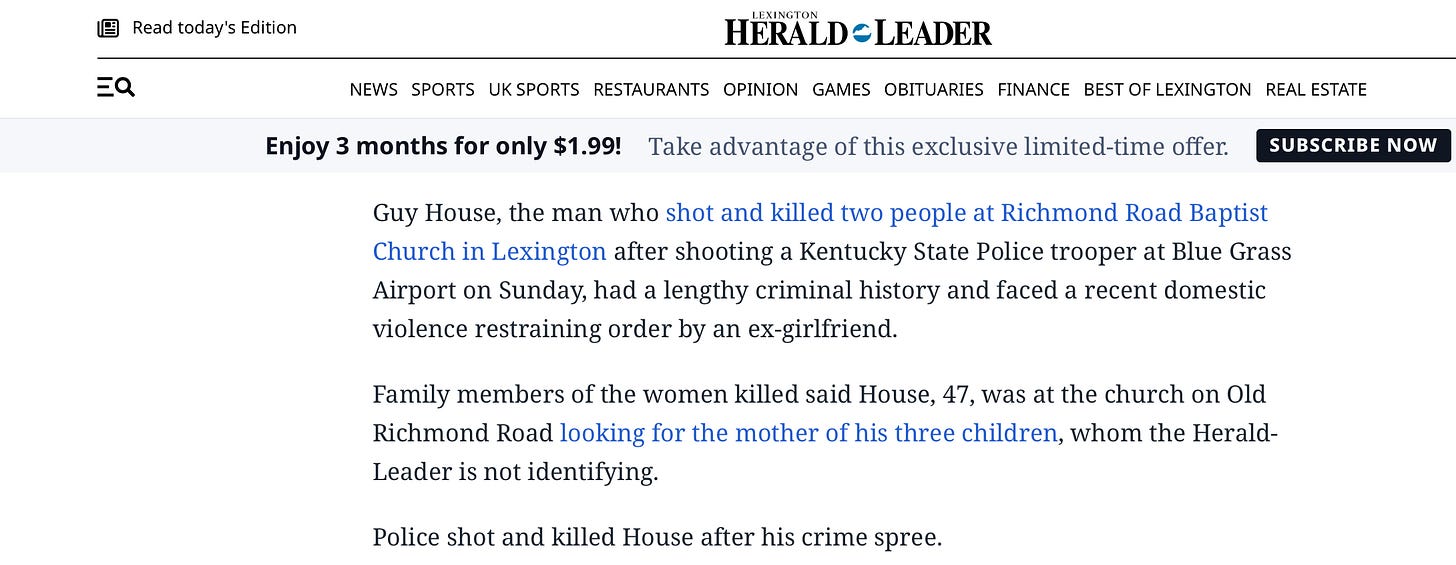How Do We Communicate thru Conflict?
week in review for the week ending July 13th, 2025
“We need to tend to our wounds, but we cannot build a life on our scabs. There are no veins in them.” — David Goa via Brad Jersak
How intensely does social media function as “… a potential conduit or ‘spread vector’ for mental illness symptoms and disorder …”? How much damage does our algorithm-driven social media culture cause to our relationships, to our capacity to communicate, to our ability to think critically and respond thoughtfully and appropriately to information? How does this impact our conflict resolution processes?
This week’s sermon focussed on Matthew 18:15-20. Pastor Jeremy called his sermon The Most Ignored Words of Jesus. It ties together many important and very relevant things, and so this essay will take you at least half an hour to read.
Here’s the Biblical passage, below.
Matthew 18: 15-20 :: Dealing With Sin in the Church
15 “If your brother or sister[b] sins,[c] go and point out their fault, just between the two of you. If they listen to you, you have won them over. 16 But if they will not listen, take one or two others along, so that ‘every matter may be established by the testimony of two or three witnesses.’[d] 17 If they still refuse to listen, tell it to the church; and if they refuse to listen even to the church, treat them as you would a pagan or a tax collector.
18 “Truly I tell you, whatever you bind on earth will be[e] bound in heaven, and whatever you loose on earth will be[f] loosed in heaven.
19 “Again, truly I tell you that if two of you on earth agree about anything they ask for, it will be done for them by my Father in heaven. 20 For where two or three gather in my name, there am I with them.”
Have you noticed how we live in a culture that exploits conflict and controversy? Our discourse has devolved into the verbal rendition of a WWE Smackdown match, in which emotional thinking and manipulative rhetoric edge out thoughtful discussion and respectful disagreement, in which ego rules and our ideas about what happened matter more than does facts and truth about what actually happened. We cannot tolerate dissonance and so we resort to ad hominem and character attacks and morally judging our interlocutors. Rather than following the Biblical example of Daniel, we have become King Sauls and Queen Jezebels in our communication and relational styles.
When you go to the magazine stand you see gossip rags. When you read opinion pieces and listen to pundits, you see and hear gossip. Punditry has edged out investigative journalism because investigation requires hard thinking, neutrality and denying one’s own confirmation bias, and it demands rigour and integrity and a thirst for facts and truth. It requires us to have respect for our audience and readership. Punditry, on the other hand, says we can show up with our biases in hand, ready and willing to stoke the fires of public anger and fear.
Rage baiting and outrage farming has proven much more fun than honesty and integrity. We would rather talk past each other, talk at our audience, and crush any benefit of the doubt lingering nearby. We live in a culture that crafts narratives, as opposed to purveying information. We would rather manipulate that trust our readership and audience to think for themselves. And we definitely would sooner not engage due diligence. And yet, the freedom we so mindlessly and complacently enjoy depends upon these social skills, which depend upon our emotional intelligence and ability to tolerate dissonance and disagreement.
Fun fact: there’s more brain activity when we encounter unpleasantness that generates negative and thoughts. In this week’s Pirkei Avot study, we discussed the importance of addressing our relationship with and response to negativity. Retreat from evil and embrace good, reminded our study leader, Lee Weissman.
Reader, what happened and why do we behave this way as a collective society? How much has social media affected us? Please take the time to click the button link at the beginning of this essay to read JD Haltigan’s paper on social media as a vector of behavioural pathology. Do Xwitter and Facebook really have that powerful an impact on the ways we engage with and relate to information about our society, politics, culture? How does that work? I hope you can take the time read and reflect.
How do we handle conflict and disagreement? Do we stuff it and project in passive aggressive ways? Do we gossip? Do we deliberately deny grace by refusing to give the benefit of the doubt, charging in armed with anger and outrage stuffed in our rage baiting verbal crack pipe? Yes, reader it reminds me of smoking a crack pipe.
Let’s look at the week in review before we get to Pastor Jeremy’s sermon on Matthew 18:15-20.
This past week we have encountered rage baiting regarding:
comments made by a RCMP Staff Sargeant speaking about radicalisation
Trump tariffs and trade economics
Mandy Patinkin
the mass shooting perpetrated by Guy House.
We’ll review the discourse around each issue in turn, and then we’ll reflect on Pastor Jeremy’s sermon.
What Did RCMP Staff Sergeant Camille Habel Say?
RCMP Staff Sargeant Camille Habel said that when someone who previously held pro-gender equality views suddenly becomes pro-traditional values, it could be a sign of radicalisation or extremism. That’s all. It’s a valid point she makes. It’s not untrue, reader — think about it.
I think it’s a poorly crafted message. I also think it’s been unfairly slammed by many conservatives. And I think the false narrative that the RCMP thinks of traditional Christian values as extremist took off like a house on fire. I think this drama highlights the problem with public discourse and the ways social media exacerbates the problem. It should warn us that narcissism and bad faith dialoguing poses a great threat to national unity and Canadian society generally.
Reader, It’s a nuanced message. it requires thought and analysis. I know that’s challenging for many in a media and discourse culture that incentivises emotional reactivity over thoughtful response. I noticed when this video clip first came out that many people in the conservative camp were ignoring the specific context in her remarks and going for the outrage juice. I do think it warranted clarification, given the lack of trust conservative Canadians have for their government and its institutions. As I just wrote, I think the comment could have been crafted better than it was done to convey the message.
It’s an important message, to be clear. And it’s unhelpful to deliberately misinterpret her remarks like this. It simply exacerbates divisiveness and makes unity building more challenging. It also creates mistrust. How can conservatives hope to gain the trust of the left wing and progressive contingent when they act out like this? It’s blatant choice to misinterpret what the Staff Sargeant said. And yet I acknowledge such a reaction emanates from a deep mistrust of left wing progressives on the part of conservatives, a valid and understandable response to the psychological abuse perpetrated by progressives and the institutions they’ve infiltrated and colonised.
Again, I’ll reiterate. The RCMP Staff Sargeant said that when someone was politically pro-gender equality and then all of a sudden swings politically and becomes pro-traditional values it could be a sign of radicalisation. Habel didn’t say traditional values were extreme. She said a sudden switch from progressive views to traditional views could be a sign of extremism. Look, reader, the RCMP has demonstrated some weakness and Canadian institutions have become infected by Wokerati—DEI thinking and this does compromise our democracy and public safety. That’s true. However, it doesn’t justify deliberately misinterpreting the message conveyed. Victimhood narcissism exists on both sides of the political spectrum.
Note, to repeat—the Staff Sargeant never said traditional values are extremist. She said a sudden swing from left to right could be a sign of extremism. It’s a reasonable and logical message. Reader, we really need to make an effort to extend benefit of the doubt to our fellow Canadians. We need to pause and think about what’s said and about our reaction to it. We are responsible for self examination and assessing the appropriateness of our reactionary outrage and offense — that’s ours to own.
The Trump Tariff Discourse
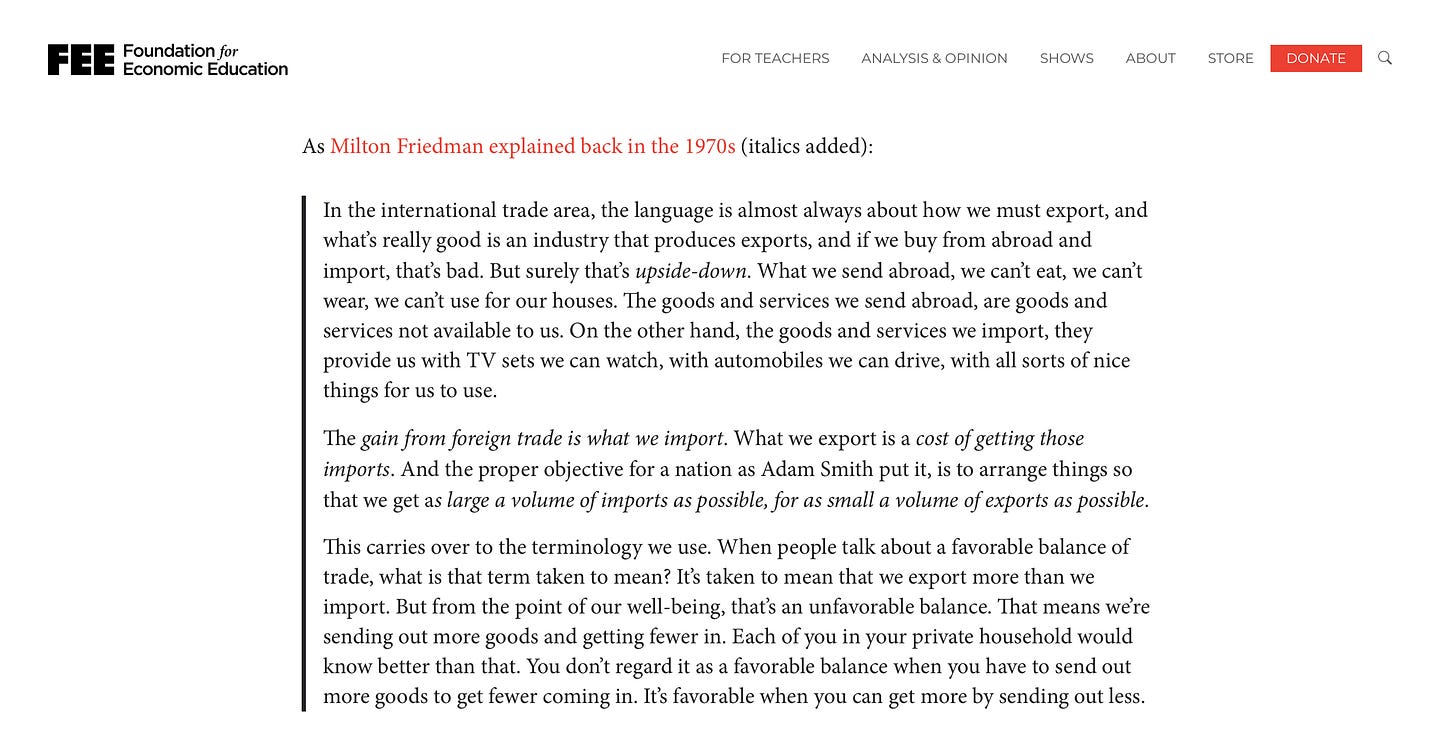
In Canada we have MAGA-style engagement farmers dominating conservative discourse. These individuals deliberately obfuscating the tariff saga. Fact: Trump’s tariffs get imposed on Trump’s people, Americans. Fact: Carney’s tariffs get imposed on Carney’s people, Canadians. It’s simple as that. A tariff serves as a tax on foreign goods to promote consumption of domestic goods. Trade deficits don’t necessarily pose an economic threat, only the naive and ignorant espouse such claims. The complexity of the Trade Economics field has apparently eluded many and it shows in the discourse.
It would seem that rage baiters and MAGA- types don’t understand Trade Economics or, if they do, they choose to prey upon the ignorance of the many who don’t fully grasp its nuances and complexity.
Trump’s tariff = taxes Americans pay on consumer goods. Carney tariffs = taxes Canadians pay on consumer goods. Canada has long had supply management marketing boards. Canada has a tighter more restrictive banking regulation system. Is that Trump’s issue here? Trump is insane so, I don’t know. We have propagandists posting stories about the impact of tariffs on Americans from outlets like Bloomberg and baiting Canadians into fearing they face these taxes at the til in Canada when they go to buy stuff. At any rate we have engagement farming influencers making laughable and absurd claims for clicks and likes and other online metrics. How much ad revenue is it worth, reader? Who knows.
Reader, some people seem deeply ignorant or wildly naive. Some other people seem dangerously predacious and maliciously driven to spread misinformation in their bid to manipulate discourse and political opinion. There’s a real contingent of bad faith actors who want people to fear and despair. It’s become an addiction to spread negativity and fear. Why?
The Mandy Patinkin Discourse and the Kahanist-Hasbara Cult
Here’s a video clip of the Patinkin-Grody NYT interview from UnXeptable, a grassroots movement launched by a group of San Francisco-Bay Area-based Israelis which welcomes all voices opposing the actions of the current Israeli government to turn Israel into a messianic theocracy, which stands in contrast to the state’s foundations as a democratic and liberal state.
Mandy Patinkin expressed a reasonable view on Netanyahu and the Israeli government in its approach to Gaza. Hasbara cultists took the low road and used descriptors such as full-blown suicidal Jew, advising Patinkin to spend some time alone with some meds, and then going further and saying shame on Mandy Patinkin for spreading a blood libel and Holocaust inversion against the Jews, Israel, and Prime Minister Netanyahu. Other reactions include a description of Mandy Patinkin’s unhinged rant, and citing cynical gratitude such as I’m glad men like Benjamin Netanyahu are running things in Israel instead of stupid actors like Mandy Patinkin who don't understand a single thing about the threat that Israel and the Jewish people are truly facing. None of these reactions come from Israeli Jews, and they don’t consider the victims of the October 7th massacre and hostage-taking, yet they claim ownership of revenge for same. Also Patinkin is himself a Jew.
“I ask Jews to consider what this man Benjamin Netanyahu and his right-wing government is doing to the Jewish people all over the world. They are endangering not only the State of Israel, which I care deeply about and want to exist, but they are endangering the Jewish population all over the world.” — Mandy Patinkin
“I hate the way some people are using antisemitism as a claim for anybody that is critical about a certain policy. As far as I am concerned, compassion for every person in Gaza is very Jewish, and the fact that I abhor the policies of the leader of that country does not mean I’m a self-hating Jew or I’m antisemitic,” Grody continued, adding that Netanyahu’s politics are the “the worst thing for Jewish people.” — Kathryn Grody, wife of Patinkin
Here’s a shocking video clip I’ll share with readers, courtesy of UnXeptable.
“I can manage with even 200 more bereaved families," Netanyahu said to Rabbi Elchanan Danino, father of hostage Ori Danino, who was murdered in a Hamas tunnel in Gaza. Netanyahu is even sicker than we thought.” — via We Are All Hostages + UnXeptable
Reader, I don’t know what to say in response to this, grieving father. What a horrible thing Netanyahu said to him. It’s a pattern of behaviour I’ve observed by Netanyahu in regards to hostage families.
Here’s another example I’ll share, this one from Hersh Goldberg-Polin’s parents.
Reader, you need to see these examples of Netanyahu’s egregious conduct toward hostage families in order to fully appreciate Patinkin’s comments and the reaction of the identitarian Hasbara Cult towards Patinkin’s comments.
Moving on.
Readers might have heard about the N12 poll regarding the war on Gaza; follow the link to the complete article with full data.
Here’s a quick summary of key data from the survey.
Which hostage deal is better?
74% Releasing all the hostages in one fell swoop | 8% Release of 10 lives now and some of the dead, and later a plan to release all the rest and stop the fighting | 12% Against a deal that includes a ceasefire | 6% didn't know
Why do you think the Prime Minister insists on hostage deal in stages?
49% political reasons | 36% Security reasons| 15% didn't know
What grade do you give the following individuals for their management of the war in Gaza?
Netanyahu — bad 55% good 41% | Defense Minister Katz — bad 52% good 37% | Chief of Staff Zamir — bad 62% good 24%
Here’s a video clip of the N12 Ulpan Shishi show from UnXeptable.
Guy House Discourse about His Murderous Rampage Mass Shooting in Lexington, Kentucky
The bodies of Guy House’s victims barely cooled and rage baiters from the Hasbara Cult decided that Guy House had converted to Islam and became a pro-Palestinian domestic terrorist hunting down Christians in a local Lexington, Kentucky Baptist church. They saw the beanie-cap and the keffiyeh in this photo (above) and decided the motive for the mass shooting and double murder. The local police said initially they had not determined a motive, and then they said they didn’t see it as an ideologically-based crime. No matter, Xwitter Rage Baiters know all the facts and everyone else is clearly stupid, or something like that.
Reader, what about the facts? When did facts become incidental?
Facts about Guy House: he had a lengthy pattern of instability, drug use, and criminal behavior. He had a history of domestic violence. The mother of his children had prevented him from seeing his children, one of whom had significant developmental delays. His most recent girlfriend had a restraining order against him, citing she felt unsafe because of him. His Facebook page reveals no devolution into Islamist extremism nor does it reveal any serious pro- Palestinian radicalism. Guy House was a sometimes wannabe rapper and a bit of a loser. Several people who knew Guy House immediately tweeted about him and what they knew about the situation.
House went on a rampage, looking for the mother of his children.
Reader, take a look at the following excerpt from the Lexington Herald Leader.
House was convicted of at least seven previous crimes before Sunday’s spree. Most recently, House was sentenced by Fayette Circuit Judge Julie Goodman in early 2023 to two years of probation for possession of a firearm, first-degree fleeing/evading police and auto theft, among other charges.
House violated his probation, though, testing positive for drugs several times. He was referred for a substance abuse assessment with a social service clinician twice after the failed drug tests, according to court documents. The assessment led to a referral for an outpatient treatment program at the Addiction Recovery Center. Court documents say House was discharged from the program Nov. 6, 2024, for noncompliance. House also absconded and failed to report to his probation officer, leading the officer to file a request to have his probation revoked and a warrant be issued for his arrest. Court documents say House was arrested for his probation violation on Dec. 11, 2024.
Do you see any indication that Islamist ideology motivated Guy House? You’re hallucinating if you say yes. A piece of clothing isn’t enough evidence to prove terrorism or extremist political ideology. Yet the Hasbara Cult and the Rage Baiting Xwitter peanut gallery still ask why the MSM hasn’t mentioned the supposed keffiyeh crime, insinuating some kind of media conspiracy to hide or downplay the creep of Muslim Brotherhood Pallywood ideology in North America.
Below you can see a clip from Fox56 indicating Shooting Suspect Known by Police.
Why do we do this, reader? What’s the net gain from spreading gossip and propaganda? It destroys and causes harm.
Now let’s talk about Pastor Jeremy’s Sunday sermon. Because, after that week in review, it’s clear that, considering the poor state of our discourse and our collective inability to have adult conversations about important matters, we certainly could use the wisdom of this sermon. Has block and report socially and emotionally stunted us? Has social media algorithm-driven information consumption culture thwarted our capacity to critically think, comprehend, and communicate? JD Haltigan seems to think so. He makes a convincing case in his paper, which I’ve linked at the beginning of this essay.
Moving on.
Reader, are you a Hippopotamus or a Hedgehog when it comes to conflict resolution in your relationships in your life? Today’s church service was about the Bible passage Matthew 18:15-20. Here are Four Things about resolving personal conflicts Pastor Jeremy pulled from the passage, Matthew 18:15-20. For the purposes of this essay, I’ve turned them into questions.
1. Why do we avoid confrontation? It’s uncomfortable, it’s cultural, don’t know how (hippo and hedgehog)
2. What’s the cost of avoidance? Gossip = spread info about someone w/o their permission, from a Rick Warren quote. Proverbs 6: 16-19 — what g-d hates.
3. What wise steps should we take before confronting? Three things to consider — a) have I prayed, b) am I being overly offended (is it really my problem?), c) is it a pattern of behaviour or a one time occurrence? Matthew 18:15-17 outlines steps to take.
4. What about some healthy steps to restoration? Proverbs 26:20 — how can we fix it. Is cancel culture pervading your heart? Is cancel culture overtaking the culture of your relationships? Henry Cloud’s 3 types of people: Wise — Foolish — Evil. Wise—Daniel in the Bible. Foolish—King Saul in the Bible. Evil—Jezebel in the Bible.
Rick Warren on Gossip
What is gossip? It’s when you talk about someone behind their back rather than going to that person directly. It’s sharing information about someone with another person who is not part of the problem or the solution. In its essence, gossip is a form of retaliation.
In the short term, gossip may make you feel better—but it actually lets the person you’re gossiping about win. It allows that person to control your conversations and emotions. Suddenly you’re spending your time talking about that person instead of all the positive things in your own life.
Gossip is incredibly destructive too … Gossip destroys churches, families, and businesses. It separates close friends. It can even destroy your life. — Rick Warren
Henry Cloud’s Three Types of People
Wise people — They regularly humble themselves, own their mistakes, and look for ways to do better next time. Wise people accept their weaknesses, avoid defensiveness, shun excuses, and model transparency. We’re smart to stick with and stay around wise people. Cloud says the wise person sees the truth, takes it in and makes adjustments.
Foolish people — They are full of blame and excuses. A fool hates knowledge (Proverbs 1:22) and takes no pleasure in understanding (18:2). They defend themselves (and their ideas) even when they aren’t attacked.
Evil people— They are corrupt, and their ways are vile; there is no one who does good. Partial list of characteristics of an evil person from Proverbs: enjoys wicked schemes (Proverbs 10:23), proclaims folly (Proverbs 12:23), spurns a parent’s discipline (15:5), speaks perversity (19:1), is quick-tempered (12:16), gets himself in trouble with his proud speech (14:3), mocks at sin (14:9), is deceitful (14:8).
I’ll throw in a Pirkei Avot verse because it seems to fit well with the theme of this sermon. You’ll find that Jesus preached about themes found in the Mishnah and He gave them His own Jesus twist.
Pastor Jeremy began his sermon by talking about a weed he noticed in the garden of the church. At first it seemed small and harmless, and then before he knew it, the weed had grown to an enormous height and proved very tenacious to pull out of the ground. Weeds can have deep taproots with creeping root systems, meaning they grow quickly and spread easily and prove difficult to suppress if left too long. At the first sighting of weeds, experienced gardeners know to pull them out to protect their plants and flowers. Pastor Jeremy likened this fast growing thorny weed to troublesome things in our relationships that we try to ignore, only to discover down the road we should have nipped it in the bud. Pastor Jeremy likens the Holy Spirit to a gardener of our heart, something to help us identify the thorny weeds in our hearts and in our connection with others. Those readers not fond of the trinity nomenclature can think of Shekinah instead of Holy Spirit. The text of Matthew 18:15-20 provides us with practical applications for restoration in our relationship with self and others.
Pastor Jeremy expressed his desire for our church to grow closer to the Divine through a diversity reflective of G-d’s character and our love for one another. Our church, Faith Fellowship, is a wonderful place where all nations come together to worship G-d and learn how to walk with Jesus. Relationships take a lot of work, like a lovely garden takes a lot of work. Gardens require attention, the need constant maintenance and upkeep, they take time to prune, water, feed, and love. Gardens reflect the intentionality of the gardener. Gardens wow us with the appearance of beautiful harmony, everything growing together in a lush and colourful and fruitful way. Gardening requires grace, devotion, patience, and intentionality. It requires timeliness and sometimes boldness in pruning. It takes a measure of discernment.
Pastor Jeremy talks about the Four Things. He mentions two types of people in a marriage or other relationship. Pastor Jeremy uses Rhinos and Hedgehogs and I prefer Hippos and Hedgehogs for the alliteration effect. Hippos react expressively and they charge at the conflict or tension. Hedgehogs shrink and retreat. Pastor Jeremy moves on from conflict resolution style to gossip. He mentions the passage from Proverbs that tells us what G-d hates.
Proverbs 6:16-19 Warnings Against Folly
16 There are six things the Lord hates,
seven that are detestable to him:
17 haughty eyes,
a lying tongue,
hands that shed innocent blood,
18 a heart that devises wicked schemes,
feet that are quick to rush into evil,
19 a false witness who pours out lies
and a person who stirs up conflict in the community.
Pastor Jeremy describes gossip like a fire. Fires need fuel, heat, oxygen. When we engage gossip it might seem like lighting or stoking a fire. Gossip destroys, sure as fire does. It wounds, it eats away at trust, it destroys community. He mentions another passage from Proverbs. What can we do to prevent ourselves gossiping — a) pray about the matter, b) engage in self examination, and ponder discernment required in the situation, and c) ask yourself — do you see a pattern or a one-time faltering?
Proverbs 26:20-22 Further Sayings of the Wise
20 Without wood a fire goes out;
without a gossip a quarrel dies down.
21 As charcoal to embers and as wood to fire,
so is a quarrelsome person for kindling strife.
22 The words of a gossip are like choice morsels;
they go down to the inmost parts.
Restoration, not cancel culture cruelty, should fill our hearts desire. G-d wants us to work towards breaking down walls and dissolving divisions, and not erecting walls and strengthening divisions. Sometimes we need an outside neutral helper or conciliatory person to guide the conflict resolution. Sometimes we cannot repair the relationship and we need to face that hard truth and let go graciously.
Q. What’s goal for us?
A. To strive towards following the (Henry Cloud) model of the Wise: to embrace humility, to take responsibility, and to adjust ourselves toward the truth as we learn it.
Pastor Jeremy talks about Henry Cloud’s three types of people. Wise Daniel chose integrity over compromise in the hostile exile culture of Babylon. When thrown in the lions den, G-d protected him by closing the mouths of the lions. Foolish Saul lost his kingdom because he refused to take responsibility for his actions and behaviour. Evil Jezebel used her power to manipulate and silence the prophets of her time. She orchestrated Navot’s death through false witnesses accusing Navot of cursing G-d and the king in order to acquire his beautiful vineyard. Jezebel met a gruesome end in which canines devoured her body.
I’ll share a video clip from Lee Weissman regarding Gaza, because he speaks about the Torah of kindness and he denounces violence and cruelty. He speaks beautifully and lovingly and it’s a good note on which I can end this long-read essay.
Loving confrontation has as its objective restoration and reconciliation — that’s the Jesus way.



